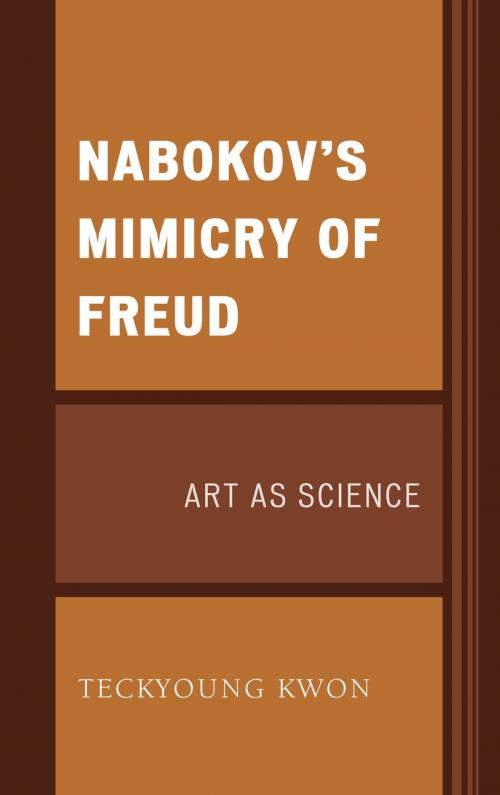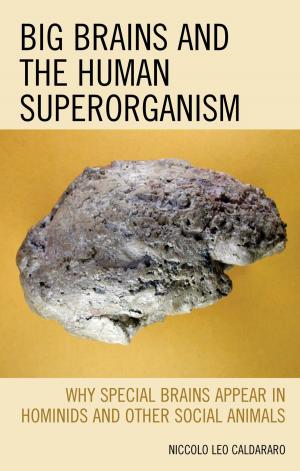Nabokov's Mimicry of Freud
Art as Science
Nonfiction, Health & Well Being, Psychology, Psychotherapy, Cognitive Psychology, Fiction & Literature, Literary| Author: | Teckyoung Kwon | ISBN: | 9781498557610 |
| Publisher: | Lexington Books | Publication: | May 30, 2017 |
| Imprint: | Lexington Books | Language: | English |
| Author: | Teckyoung Kwon |
| ISBN: | 9781498557610 |
| Publisher: | Lexington Books |
| Publication: | May 30, 2017 |
| Imprint: | Lexington Books |
| Language: | English |
In Nabokov’s Mimicry of Freud: Art as Science, Teckyoung Kwon examines the manner in which Nabokov invited his readers to engage in his ongoing battle against psychoanalysis. Kwon looks at Nabokov’s use of literary devices that draw upon psychology and biology, characters that either imitate Freud or Nabokov in behavior or thought, and Jamesian concepts of time, memory, and consciousness in The Defense, Despair, Lolita, Pale Fire, and Ada. As Kwon notes, the transfiguration of biological mimicry and memory into an artistic form involves numerous components, including resemblance with a difference, contingency, the double, riddles, games, play, theatricality, transgression, metamorphosis, and combinational concoction. Nabokov, as a mimic, functions as a poet who is also a scientist, while his model, Freud, operates as a scientist who is also a poet. Both writers were gifted humorists, regarding art as a formidable vehicle for the repudiation of all forms of totality. This book is recommended for scholars of psychology, literary studies, film studies, and philosophy.
In Nabokov’s Mimicry of Freud: Art as Science, Teckyoung Kwon examines the manner in which Nabokov invited his readers to engage in his ongoing battle against psychoanalysis. Kwon looks at Nabokov’s use of literary devices that draw upon psychology and biology, characters that either imitate Freud or Nabokov in behavior or thought, and Jamesian concepts of time, memory, and consciousness in The Defense, Despair, Lolita, Pale Fire, and Ada. As Kwon notes, the transfiguration of biological mimicry and memory into an artistic form involves numerous components, including resemblance with a difference, contingency, the double, riddles, games, play, theatricality, transgression, metamorphosis, and combinational concoction. Nabokov, as a mimic, functions as a poet who is also a scientist, while his model, Freud, operates as a scientist who is also a poet. Both writers were gifted humorists, regarding art as a formidable vehicle for the repudiation of all forms of totality. This book is recommended for scholars of psychology, literary studies, film studies, and philosophy.















